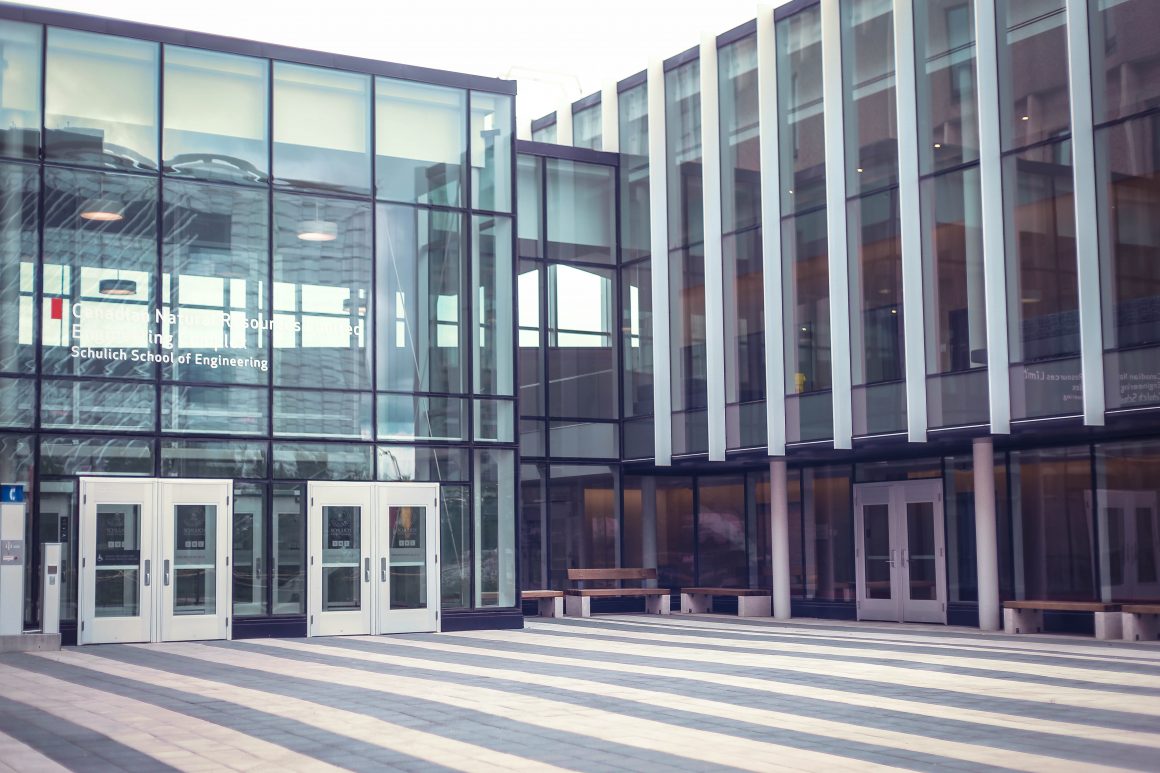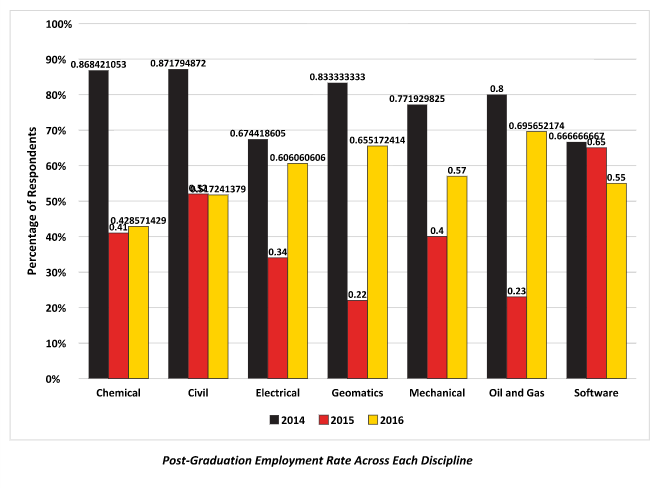
U of C engineering graduates face fluctuating employment rates
By Jason Herring, July 11 2017 —
Employment rates for Schulich School of Engineering graduates have declined since 2014 amid an uncertain economic climate and low oil prices, according to a series of surveys conducted by the Engineering Career Centre (ECC).
In 2014, graduates of civil and chemical engineering had the best shot of finding work, each with an 87 per cent employment rate among newly graduated students. In 2015 and 2016, post-graduate employment rates in those departments hovered around 42 per cent and 52 per cent, respectively. Geomatics had the biggest drop between 2014 and 2015, with employment rates falling from 83 per cent to 22 per cent, before bouncing back to 66 per cent in 2016.
 The surveys were conducted between January and March of their respective years and asked the previous year’s graduate class about their job status, among other things. Students who didn’t respond to the question about employment were counted as not being employed.
The surveys were conducted between January and March of their respective years and asked the previous year’s graduate class about their job status, among other things. Students who didn’t respond to the question about employment were counted as not being employed.
Despite lower employment rates, ECC manager Jenny Cruickshank says the faculty is “cautiously optimistic” about job prospects for upcoming graduating classes.
“We think that there are definitely signs of improvement in the employment situation. As much as it’s been a problem in the last two years, all signs are pointing towards a firm recovery,” Cruickshank said.
Cruickshank points at internship rates as evidence of an improved post-graduate employment outlook.
“Internships have actually picked up for students over the last year. We had a really banner year in 2015. We had almost the same number of interns out in 2016 and we’re set to surpass that in 2017. Our job postings have increased significantly as well,” she said. “I think there’s a lot of reasons for that, among them that we’ve been more active in trying to engage with the industry and working to create partnerships with students within the Schulich school.”
Laura Fader is a fifth-year chemical engineering student and the president of the Engineering Students’ Society. She says she has noticed a shift in philosophy among students since her first year.
“When I started oil was a very different situation, so I think back then, for instance, it shifted what students wanted to go into. I think chemical and oil and gas were very popular in my first year and I think people went into those solely because the job prospects were good,” Fader said. “Now I think people are really taking a step back. I always tell students, there’s always going to be an industry for whatever you do, so find something you’re passionate about and would enjoy doing.”
First-year engineering students all complete the same set of courses before entering into specific departments in their second year. They submit a ranking of their preferred departments and are placed based on their GPAs and the departments’ capacities.
Though there has been a flux in job prospects for different departments, Cruickshank says demand for work remains constant for each program. She adds that jobs are still available, but engineering students have to work harder to differentiate themselves from their peers than in past years.
“What I’m hearing in conversations — and my experience is more with fourth-year students — is they’re having to work harder. They’re having to stand out more than perhaps they have in the past,” she said. “Is it taking longer, is it more challenging or requiring a more specific approach than just throwing your resume into the folder with 200 other applicants? Yes, but those are the skills we’re trying to teach them as well from first-year to fourth-year, so they graduate with those skills and graduate with the ability to really shine.”
